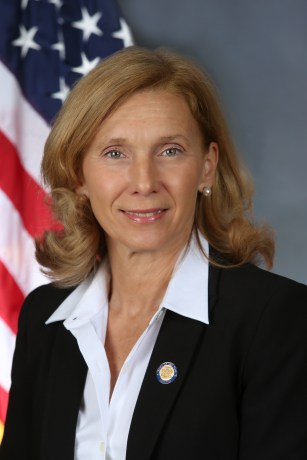In the wake of a tidal wave of allegations of sexual abuse and misconduct sweeping the country, state Sen. Elaine Phillips (R-Flower Hill) and state Sen. Catharine Young (R-Olean) and have proposed landmark legislation that would strengthen New York State’s sexual harassment laws.
The measure would enact sweeping new protections for victims including banning secret settlements, establishing a statutory definition of sexual harassment, and expanding the law to protect independent contractors. The measure represents the most significant statewide initiative on the issue in decades.
“There is no place in our government, or society as a whole, for sexual assault or harassment,” Phillips said. “It is inspiring to see the movement of women across our country coming forward, sharing their personal stories, and overcoming the stigma and shame brought on by the inappropriate actions of others. The dialogue must continue and as elected officials we must do all possible, to protect those who have been forced to carry the burden of harassment out of fear for their future.
“This landmark legislation aims to punish abusers, prevent harassment, and further protect all victims. I applaud the courageous women who have come forward to share their difficult stories and hope this bravery will aid them with their personal healing process.”
The legislation, co-sponsored by Phillips and Young, would include the following provisions:
- Prohibit secret settlements. To help discourage serial predators, this measure would prohibit courts from accepting any settlements that include confidentiality agreements or provisions. This would help ensure that those responsible are held accountable while providing employers with a greater incentive to institute strong anti-harassment policies and build a workplace culture that discourages such behavior.
“As the Harvey Weinstein case and others have highlighted, serial predators often use confidential settlements to silence their victims and protect their reputations, leaving them free to harass others,” Young said. “In order to affect real and lasting change, these settlements must be removed from the equation.”
- Prohibit mandatory arbitration for sexual harassment complaints. Mandatory arbitration clauses are often used by employers to force sexual harassment victims into private arbitration proceedings, which precludes their ability to seek legal action.
“Mandatory arbitration clauses, much like confidential settlements, are intended to keep sexual harassment incidents under wraps, shielding the company, and often the offender, from negative publicity,” Young said. “Eliminating these clauses is necessary to ensure that justice is served and that these offenses aren’t hidden from view.”
- Expand the definition of “employer” to include those who employ independent contractors. Currently, individuals who are freelance or contract workers cannot file sexual harassment complaints against the enterprises or individuals who have employed their services. This includes a broad and growing range of businesses, including entertainment companies, news and media organizations, construction firms, real estate agencies, and hair salons, among many others. The Government Accountability Office has placed the percentage of freelance and contract workers at approximately 40 percent of the workforce.
This legislation would close this loophole by extending to contract workers the same right to file sexual harassment complaints as individuals who are directly employed by the company or entity.
“Many of the actresses who’ve made allegations against Harvey Weinstein had no legal recourse because they were ‘independent contractors’ working on films his studio was producing,” Phillips said. “Under this bill, those women, and individuals in any independent working arrangement, would be eligible to file sexual harassment complaints, rightly having access to a process for redress.”
- Adopt the definition of “sexual harassment” into state law. Although the state Division of Human Rights has a definition it uses administratively, there is currently no definition in statute of what constitutes sexual harassment. That leaves litigants subject to varying interpretations by judges, who may improperly dismiss sexual harassment cases at the outset. One study found that approximately 37 percent of cases are dismissed pretrial.
“Establishing a definition in state law offers protection for everyone involved in sexual harassment cases,” Young said. “With a consistent standard to evaluate claims, the subjectivity is removed, providing a clear benchmark for evaluating the merits of a case. This will benefit both claimants and the accused.
“Behind the revelations of recent weeks are real people – women and men who bear emotional scars from the harassment they endured and from the burden of remaining silent for so long. Yet, their stories and experiences have provoked a long-overdue national dialogue on sexual harassment and will lead to important changes in our laws.”

